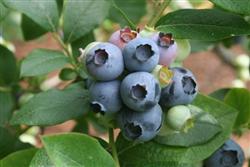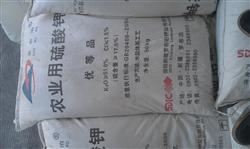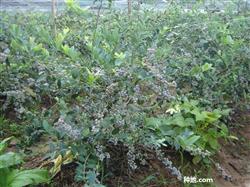How to fertilize blueberries?

How to fertilize blueberries? Please introduce methods to fertilize blueberries can refer to the following methods: first, the characteristics of blueberry fertilizer demand: blueberry is a typical calcium-dislike plant, which often leads to iron deficiency and chlorosis induced by too much calcium when cultivated on calcareous soil. Blueberry belongs to oligotrophic plant. Compared with other fruit trees, the content of nitrogen, phosphorus, potassium, calcium and magnesium in blueberry is very low. Because of this characteristic, it is necessary to prevent excessive fertilization and fertilizer damage in blueberry fertilization. Another characteristic of blueberry is that it belongs to ammonium-loving fruit tree and has stronger absorption capacity of ammonium nitrogen than nitrate nitrogen in soil. When blueberries are planted, usually the soil has been mixed with organic matter or the surface has been covered with organic matter, so blueberry fertilization mainly refers to topdressing. Farm manure is rarely used in blueberry cultivation. Nitrogen, phosphorus and potassium are the main fertilizers in blueberry orchards. The main results are as follows: 1. the response of blueberry to nitrogen fertilizer was very different due to different soil types and fertility. The fertilization experiment of Maiden blueberry cultivated on dark brown forest soil in Changbai Mountain showed that with the increase of nitrogen application rate, the yield decreased, the fruit became smaller, the fruit ripening period was delayed, and the overwintering was serious. Therefore, the content of nitrogen in the soil type of dark brown forest is higher, and the application of nitrogen fertilizer is not only ineffective but also harmful. According to foreign research, blueberry is effective to apply nitrogen fertilizer in the following cases; sandy loam and mineral soil with low soil fertility and organic matter content; blueberry has been cultivated for many years, soil fertility decreases or soil pH value is higher (more than 5.5). 2. In the soil deficient in phosphorus, the effect of increasing the yield of phosphorus fertilizer is significant. However, when the content of phosphorus in the soil was high, the application of phosphate fertilizer could not increase the yield but delay the fruit ripening. Generally, when the level of phosphorus in the soil is less than 6 mg / kg, it is necessary to increase the application of 15-45 kg / ha of phosphorus pentoxide. 3. Potash fertilizer can significantly increase the yield, mature earlier, improve the quality and enhance the stress resistance of blueberry. However, excessive production did not increase yield, but made the fruit smaller, overwintered seriously, and led to magnesium deficiency. In most soil types, the suitable potassium application rate for blueberry is 180 kg potassium sulfate per hectare. Second, the fertilization method of blueberry: 1, the type of chemical fertilizer applied: the application of complete fertilizer can increase the yield by 40% compared with single-fertilizer. Therefore, the ratio of nitrogen, phosphorus and potassium is advocated in blueberry fertilization. The proportion of fertilizer mostly tends to 1:1:1. In the soil with high content of organic matter, the amount of nitrogen fertilizer decreased and the ratio of nitrogen, phosphorus and potassium was 1:2:3, while in mineral soil, the content of phosphorus and potassium was high, and the ratio of nitrogen, phosphorus and potassium was 1:1:1 or 2:1:1. Blueberries are not only difficult to absorb nitrate nitrogen, but also cause damage such as poor growth of blueberries. Therefore, it is better to apply ammonium nitrogen fertilizer such as ammonium sulfate for blueberry. Ammonium sulfate also has the effect of reducing soil value, especially in sandy and calcareous soils with high pH value. In addition, blueberries are very sensitive to chlorine and can easily cause excessive poisoning, so do not choose chlorine-containing fertilizers, such as ammonium chloride, potassium chloride and so on. 2. The method and time of fertilization: high-clump blueberries can be applied in furrows, and the suitable depth is 10ml / m 15cm. It can also be fertilized through drip irrigation system. After the dwarf blueberry orchard is formed, it is connected into pieces, mainly spread. The period of soil fertilization is generally carried out before sprouting in early spring, which can be applied twice and again in the berry ripening period. 3. The amount of fertilizer applied to blueberries: excessive fertilization of blueberries can easily cause tree damage or even death of the whole plant. Therefore, the amount of fertilizer application should be determined cautiously, depending on soil fertility and tree nutritional status. Leaf analysis technology and soil analysis technology are widely used in blueberry production in the United States. The symptoms of iron deficiency in blueberries: iron deficiency and chlorosis is a common nutritional disorder of blueberries. The first symptom is chlorosis between the veins, but the veins remain green, and when the symptoms are serious, the veins are also green, and the top leaves of the new shoots show early and serious symptoms. The main causes of iron deficiency and chlorosis are insufficient content of soil organic matter, high content of soil lime, high PH value of soil, high content of Ca2+ in soil and so on. The most effective method to correct iron deficiency chlorosis is to apply acid fertilizer (NH4) 2SO4, which is better if combined with soil improvement and peat. Spraying Fe2SO4 on leaves can only temporarily make the leaves green, and Fe2SO4 is difficult to spread in the leaves, and only speckled recovery occurs after application. The effect of foliar spraying chelated iron was better, the leaves turned green within 30 days, and it was still effective in the second year. 2. the symptom of magnesium deficiency of blueberry: the symptom is chlorosis between leaf margin and leaf vein during berry ripening, which mainly appears on fast-growing new shoots and old leaves, and then turns yellow, orange and finally red. Iron deficiency chlorosis can be corrected with MgO at a dosage of 22.4kg/ha. 3. Symptoms of boron deficiency of blueberries: the symptoms are that the buds break out abnormally, the apical buds wither, turn dark brown a few weeks after germination, and finally die at the top. The main cause of boron deficiency is lack of soil moisture, which can be corrected by foliar boron spraying. The reasons of element deficiency in blueberry orchard are as follows: 1. Soil water content is insufficient or uneven distribution. 2. Poor root development caused by poor soil drainage, insect pests, fertilizer damage, diseases and soil consolidation. 3. The content of ammonium nitrogen in soil is insufficient. 4. The content of soil organic matter is insufficient. Soil physical and chemical properties are the main reason for the lack of mineral elements. In the process of blueberry cultivation, it is very important to create a good soil condition. 4. Green manure in blueberry orchard: orchard green manure refers to a kind of organic fertilizer which is directly applied to fruit trees with fresh green plants. Methods: the technical measures of directly burying the green manure crops in the orchard after cutting. Green manure can be wild weeds inside and outside the national garden, or it can be planted and cultivated green manure crops such as legumes (vetch, arrow pea, sweet clover, broad bean, cowpea, Astragalus adsurgens), Gramineae (Italian ryegrass, rye) or Cruciferae (radish, rape) in flowering or early fruiting stage. The use of green manure crops can not only directly increase the nutrient supply of orchards, increase soil organic matter, improve soil physical and chemical shape, but also prevent wind and fix sand, reduce soil erosion, regulate orchard soil moisture, and reduce low temperature in hot summer. the effect of improving orchard ecological environment and promoting Lignification of blueberry branches. The green period usually comes after the blueberry harvest. Click to get more strawberry planting techniques click to get more fruit planting techniques
- Prev

Pineapple planting: how to manage pineapple in winter?
How to manage pineapple in winter? Please introduce the method of supplying nutrients to pineapple after winter. the following is the method of fertilization for pineapple after winter (for reference): apply potassium fertilizer once again to pineapple after winter, applying 100kg potassium chloride or potassium sulfate per mu. After clearing the weeds between the pineapple plants, shallow tillage plants.
- Next

How to control diseases and insect pests in blueberry planting?
How to control diseases and insect pests in blueberry planting? Please guide the original fungi, bacteria and viruses that harm blueberries, there are dozens of diseases. The common hazards in production are as follows. (1) blueberry fungal disease 1. Blueberry rigor disease is the most common and severe disease in blueberry production.
Related
- Moge, come on! The staff of the peasant association in the producing area of cantaloupe were frightened when the crowd gathered.
- Causes and Solutions of low Fruit setting rate of Apple
- Symptoms and control measures of passion fruit virus disease
- Fruit growing lesson: how do apple orchards keep high yields?
- Can you build orchards in the mountains? What are the pros and cons?
- How to manage the coloring period of Crisson grape?
- This paper introduces the processing technology of two kinds of fig products.
- How much is a month for retired teachers in rural areas by 2020?
- How can strawberry planting increase sugar content? We should pay attention to management in many aspects.
- What are the cultivation techniques on how to improve the yield of golden fruit?

